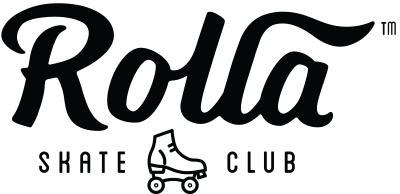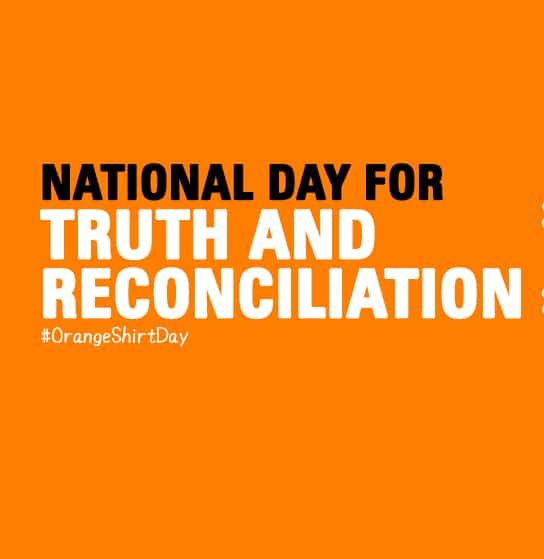This post is written and compiled by settlers, working and living on the traditional, ancestral, unceded and stolen territory of the Sḵwx̱wú7mesh (Squamish), Stó:lō and Səl̓ílwətaʔ/Selilwitulh (Tsleil-Waututh) and xʷməθkʷəy̓əm (Musqueam) Nations.
National Truth and Reconciliation Day is an important day for both settler and Indigenous communities. As settlers, we take this day to reflect on Canada’s unforgivable history of genocide towards First Nations, Inuit, and Métis people — the stewards of this place for thousands of years. We mourn for the hundreds of thousands of children abused, mistreated, and killed at Residential Schools. We rage at the injustice of the epidemic of Missing and Murdered Women and Girls and our government’s failure. We call upon the Government of Canada to act now on the 94 Calls to Action. And we open our hearts and minds to ways we can better support, uplift, repair, and uphold.
Remembering that this is a year-round work and effort in the work towards reconciliation and healing for Indigenous peoples, here is a list of some actions you can take to educate yourself and others about Canadian history. Resources shared from Skipper Otto.
- Read the 94 calls to action of the Truth and Reconciliation Commission 2. In a summary report released earlier this year, the commission published 94 “calls to action” urging all levels of government — federal, provincial, territorial and aboriginal — to work together to change policies and programs in a concerted effort to repair the harm caused by residential schools and move forward with reconciliation. Even the act of reading these recommendations is an important step toward reconciliation.
- Wear orange. Read Phyllis Webstad’s Story Behind Orange Shirt Day
- Read a book or listen to a podcast:
- Media Indigena: a weekly podcast by Indigenous producers on a variety of Canadian news topics
- The Secret Life of Canada podcast: “a history podcast about the country you know and the stories you don’t.”
- Bead by Bead – Yvonne Boyer and Larry Chartrand: Bead by Bead lays bare the failure of judicial doctrine and government policy to address Métis rights, and offers constructive insights on ways to advance reconciliation.
- They Came for the Children: Canada, Aboriginal Peoples, and Residential Schools – Truth and Reconciliation Commission of Canada staff: The Truth and Reconciliation Commission of Canada published this history as a part of its mandate to educate the Canadian public about residential schools and their place in Canadian history.
- Residential Schools, With the Words and Images of Survivors – Larry Loyie, Wayne K. Spear and Constance Brissenden: “This essential volume written by award-winning author Larry Loyie (Cree), a survivor of St. Bernard Mission residential school in Grouard, AB, and co-authored by Constance Brissenden and Wayne K. Spear (Mohawk), reflects the ongoing commitment of this team to express the truths about residential school experiences and to honour the survivors whose voices are shared in this book.”
- Summary of the Indian Act: This is an excellent, brief, plain language explanation of an act which is shockingly still in effect today in spite of its initial objective of control and assimilation, to “continue until there is not a single Indian in Canada that has not been absorbed into the body politic, and there is no Indian question, and no Indian department.”
- Some other great books:
- Peace Pipe Dreams: The Truth about Lies about Indians, Darryl Dennis
- Indian Horse, Richard Wagamese
- Braiding Sweetgrass, Robin Wall Kimerer
- 21 Things You May Not Know About the Indian Act, Bob Joseph
- The Inconvenient Indian, Thomas King
- Donate!
The Indian Residential School Survivors Society (IRSSS) is a provincial organization with a twenty-year history of providing services to Indian Residential School Survivors. They strive to provide physical, emotional, intellectual, spiritual growth, development, and healing through culturally-based values and guiding principles for Survivors, Families, and Communities. The Assembly of Seven Generations is raising funds to find a new space to host their marketplace, weekly gatherings, and an office. They are also looking for access to continue land-based programming. Here is the donation link. Consider giving “One Day’s Pay” without requiring a tax receipt (their site has recommended organizations for donations as well). Continue uplifting and donating to on the ground movements that defend and protect the land and Indigenous livelihoods: Tiny House Warriors (Secwepemc Territory), Gidimt’en Checkpoint Camp, Unist’ot’en Camp (Wet’suwet’en Territory), Braided Warriors (Indigenous Youth Organizing). - Attend the Food is our Medicine Webinar.
Across the country, over 300 leaders in health care and community work are deepening their understanding of the complex relationships between Indigenous foodways, reconciliation, healing and health care with Food is Our Medicine. You can now explore a self-paced Learning Journey and a multimedia Digital Resource Library to learn about Indigenous perspectives, cultures and foodways, and reflect on how to work towards decolonization and reconciliation in your workplace and personal life. This series was developed by the Indigenous and Allies Advisory in collaboration with Nourish, and with the contributions of Indigenous artists and artisans.
- Take the Indigenous Canada Online U of A Course.
Indigenous Canada is a 12-lesson Massive Open Online Course (MOOC) from the Faculty of Native Studies that explores Indigenous histories and contemporary issues in Canada. From an Indigenous perspective, this course explores key issues facing Indigenous peoples today from a historical and critical perspective highlighting national and local Indigenous-settler relations.
Here at Rolla Skate Club, we have our Bursary Program to support students with class fees. Click on the Bursary Program link to learn more about how can you access or contribute to the Program to help others get rolling. We also offer subsidies on our Instructor Program for Indigenous and Black skaters.
If you need help or resources as a Residential School survivor: from @destinationindigenous
National Residential School Crisis Line: 1-866-925-4419
First Nation and Inuit Hope and Wellness 24/7 Help Line: 1-855-242-3310
Alberta: 1-888-495-6588
British Columbia: 1-877-477-0775
Territories: 1-866-818-3505
Saskatchewan: 1-866-250-1529
Quebec: 1-877-584-2965
Ontario: 1-888-301-6426
Atlantic Provinces: 1-866-414-8111
*Front Image from the Edmonton Public Library

